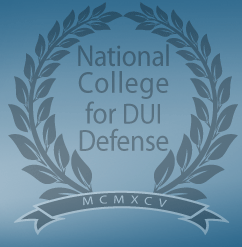By RACHEL LA CORTE Associated Press Published: Apr 9, 2013 at 11:50 AM
OLYMPIA, Wash. (AP) – Lawmakers are considering tightening up the state’s laws against driving under the influence after two recent cases that left three dead and two – including an infant – critically injured.
Rep. Roger Goodman held a work group meeting Tuesday morning to discuss a variety of ideas to stop more impaired drivers. The working group comprised more than 20 people, including judges, attorneys, law enforcement, and victims of impaired drivers.
Ideas discussed at the meeting included making driving under the influence a felony on the third or fourth conviction within 10 years, rather than the current law that has it at five. Also discussed were lifetime driving bans after a certain number of DUIs, roadside sobriety checkpoints and mandatory installment of interlock devices installed on cars after someone is charged, rather than convicted.
Goodman noted the significant costs that would be associated with lowering the felony threshold, saying that lowering it to the third conviction would cost about $200 million for construction of a new prison to confine the number of drunken drivers.
“These proposals are tough in our current fiscal climate,” he said. Lawmakers are nearing the end of a 105-day legislative session where they are tasked with balancing a budget deficit of more than $1.2 billion while adding more money to the state’s basic education system.
But Frank Blair, whose 24-year-old daughter Sheena was killed by a drunken driver in 2010, said that costs can’t measure loss.
“At some point these people need to be removed from society because they kill us,” he told the group.
Goodman and other lawmakers involved with the issue from the Senate and House met with Gov. Jay Inslee Tuesday afternoon to discuss what ideas could be included in legislation. The Senate had already carved out time for a Thursday morning hearing on a newly-introduced, title-only bill on driving under the influence, but Republican Sen. Mike Padden of Spokane Valley, the sponsor of that bill, said that hearing was now likely to be a work session as they continue to decide what might be included in a bill.
Padden said he hopes a bill could be ready within the next week. Goodman said that the next step was for each of the lawmakers in the meeting with Inslee – himself, Padden, Republican Rep. Brad Klippert and Democratic Sen. Adam Kline – would be to go over the ideas discussed and communicate with Inslee’s staff within the next two days to further discuss what the bill might look like.
Goodman said that while the state has passed several laws to increase penalties for drunken drivers, in light of recent deadly accidents, “there’s a compelling state interest here to improve road safety.”
Last month, a suspected drunken driver slammed into a family crossing the street in a residential Seattle neighborhood, a crash that critically injured a 10-day-old child and his mother and killed his grandparents.
Karina Schulte, 33, and her son remain in the intensive care unit, said Susan Gregg, a spokeswoman for Harborview Medical Center in Seattle. Grandparents Dennis Schulte, 66, and Judith Schulte, 68, died at the scene.
Mark Mullan, 50, was ordered held on $2.5 million bail pending an arraignment Thursday. He had prior DUI arrests, was driving on a suspended license at the time of the crash, and was supposed to have an interlock device on his truck, but did not.
Last week, a Seattle woman was killed in a crash with a wrong-way driver on Highway 520 near the University of Washington. Michael A. Robertson, 25, has been charged with vehicular homicide and ordered held on $1 million bail. Police and prosecutors say Robertson was driving under the influence when he crashed head-on into a car driven by 58-year-old Morgan Williams on Thursday.
Inslee said earlier in the day that he wants to see changes including more resources to prosecute drivers. He also said that the idea of putting interlock devices on cars immediately after arrest was potentially a “sensible approach.”
“What I would like to see is the most aggressive approach to alcohol impaired drivers as humanely possible here,” he said. “Alcohol-impaired drivers are just like a ticking time bomb that a terrorist would have.”
Padden said that while drunken driving deaths have dropped in the state over the years, “we could do more.”
“Our goal should be zero deaths, ” he said.
Washington state Patrol spokesman Bob Calkins said that there are about 40,000 DUI arrests a year, half made by the patrol, the other half by local law enforcement.
In 2011, the most recent data available, there were 454 traffic accident fatalities, 199 of which a driver was impaired by either drugs or alcohol, he said. Of that 199, 135 were impaired by alcohol only. In 2007, of 571 total traffic fatalities, 272 involved people who were impaired while driving.
“It’s been coming down steadily,” Calkins said.







